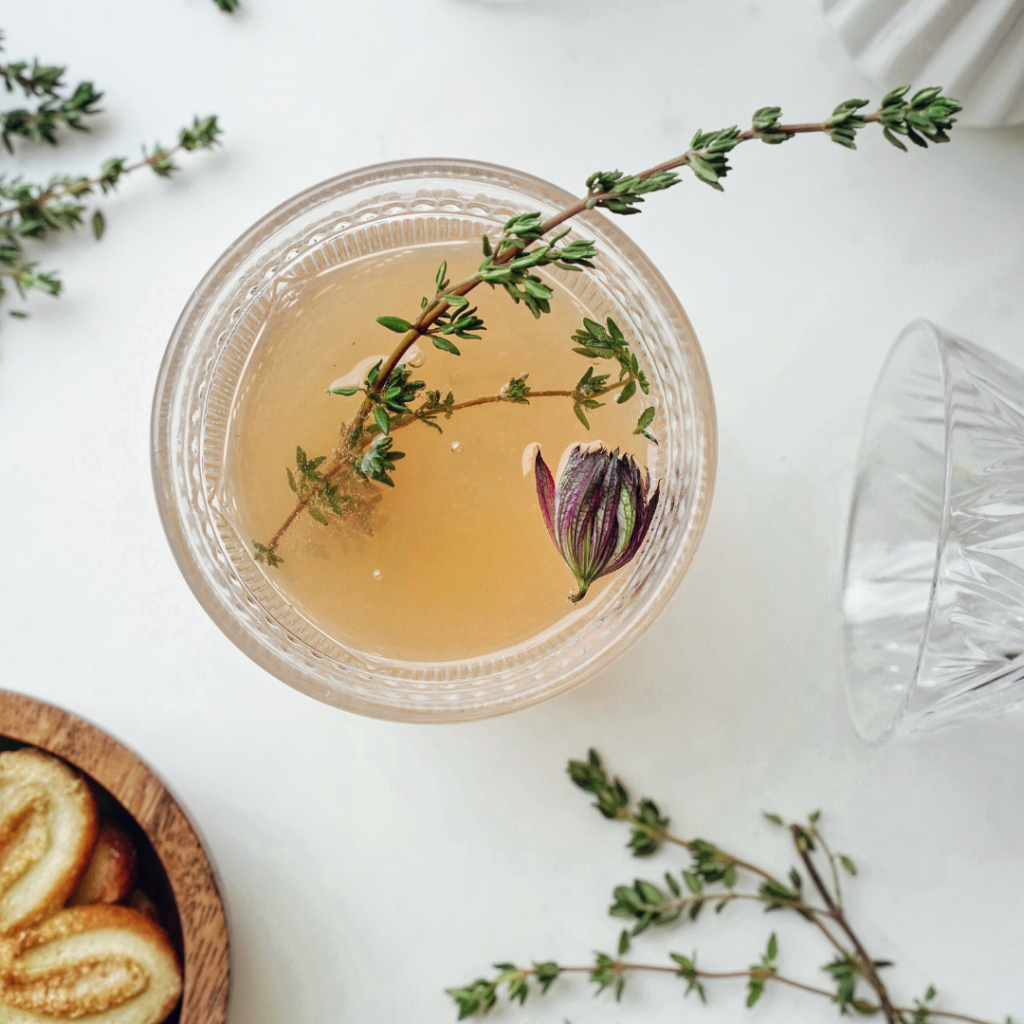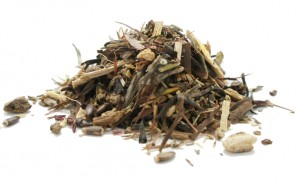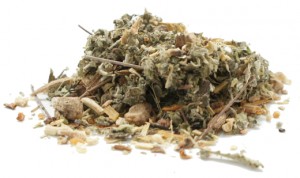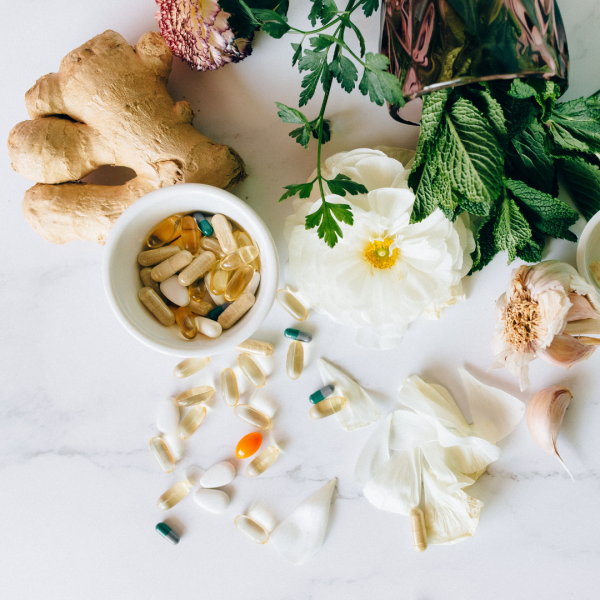I am sure you have heard about cleansing from one place or another; maybe it was about cleansing your colon or detoxifying your liver. While it may seem like a new fad, cleansing has been around for thousands of years, used by the Japanese, Egyptians, and Native Americans. Cleansing has been used as a natural way to keep the body healthy and may be one of the most beneficial things to do before you get pregnant.
Fertility Cleansing
The time while you are preparing for conception is one of the most important times to create a healthy body in preparation for pregnancy. It is also the best time to do a fertility cleanse. Fertility cleansing is a way to support the body in preparation for conception by cleansing the uterus and liver. A fertility cleanse encourages the liver to cleanse the body of toxins and excess hormones. It also supports the uterus to cleanse itself of old stagnant blood and increases circulation to the uterus while tonifying the uterine tissues.
Note: Do not cleanse during pregnancy or breastfeeding. You do not want to expose your baby to your body’s toxins as they circulate in your blood on the way out.
Why Fertility Cleanse?
Over the years the body can accumulate toxins from chemicals in the air, earth, and water and from substances we consume daily or slather on our skin. Many of these toxins get stored in the fatt; tissues of the body and can be released quicker through cleansing. Some of these toxins may be left from:
- Hormonal birth control
- Cigarette smoke
- Pesticides
- Excess hormones
- Poor diet
- Alcohol
Ideally, we would like our bodies to be as healthy as possible during pregnancy; through cleansing we are able to support the body in its natural ability to rid itself of these substances.
While cleansing is beneficial, not just any cleanse is going to be beneficial for fertility. A fertility cleanse is specific to the reproductive system and assists the body in eliminating the additional burden of substances not good for fertility.
A fertility cleanse focuses on three major areas that can help the body to prepare for conception: liver health, uterine health and increasing circulation to the uterus.

Download The Fertility Cleanse Guide
- Learn how to cleanse to prepare for pregnancy
- Get all the details on fertility cleansing and how to use it for fertility health
- Tips for supporting yourself while cleansing
- Common questions answered about the Fertility Cleanse
Liver Health
The liver helps to filter toxins from the body including excess hormones. If there is an overabundance of estrogen, it is the liver’s job to remove it from the system. Sometimes, due to poor diet, lifestyle or general health (chronic medication or alcohol are two examples), the liver may need some stimulation and support to get rid of these substances.
Linda Page, Ph.D., Traditional Naturopath, hypothesizes that every American “has some degree of liver malfunction” as a result of the standard American diet which is often high in empty calories, processed foods, fat, refined sugar, grains and alcohol. Other contributing factors to poor liver function are the unknown amounts of toxins from lifestyle choices, environmental toxins, and body care products. Other cultures may also be impacted similarly in this age of convenience.
By using whole herbs to support the liver you are helping your body to better cope with oxidative stress from our industrial world and the impact it could be having on your reproductive health. I will cover liver-supportive herbs in brief below, but to give you an example of the benefits of whole herbs, let me share about Milk Thistle (Silybum marianum):
- Milk Thistle is known as the most beneficial liver herb. It’s benefits have been studied extensively, with mixed, yet promising findings. Animal studies in the German Journal of Medicinal Plant Research, Planta Med., found that Milk Thistle combats oxidative stress and increases glutathione content throughout the digestive tract, including the liver. Glutathione is a key antioxidant, “nature’s master antioxidant and detoxifier”, for the liver. Researchers at the Department of Gastroenterology, Cisanello Hospital, Pisa, Italy, report evidence from experimental research and clinical studies that glutathione holds promise for those needing to recover from oxidative stress-induced liver damage.
Uterine Health
Uterine health is very important for reproductive health. Every cycle, the uterus is supposed to release the lining that was built that month for the embryo to implant. In some cases the uterus is not completely cleansed every cycle, so old stagnant blood remains. As you can imagine, this is not the best environment to house a new embryo.
What causes the uterus to not fully release its contents every month? Some factors may be…
- Low circulation
- Hormonal imbalance
- Unhealthy diet
- Misplaced uterus
Through the use of specific cleansing and uterine herbs you can help support your uterine health, increase circulation and help tonify the uterine muscles, all helping to promote a healthy uterine environment. One example is Red Raspberry leaf (Rubus idaeus):
- Red Raspberry leaf is renowned for it’s ability to relieve uterine spasm and reduce prostagladin production, in turn easing contraction of smooth muscles like those in the uterus. The European Medicines Agency; Committee on Herbal Medicinal Products (HMPC) acknowledges the traditional use of Red Raspberry leaf for “symptomatic receive of minor spasm associated with menstrual periods.” Combine Red Raspberry leaf with other herbs, Nettle (Utica urens) for example, for a nutrient-powerhouse herbal combination, tonifying to the uterus.
Increasing Circulation to the Uterus
In order for the uterus to function at its best, it requires proper circulation. With proper circulation, the communication loop between the uterus, ovaries, and the rest of the endocrine system is able to function smoothly. This is necessary for proper hormonal balance and all of the functions dependent on it such as ovulation, menstruation, and hormone production. Herbs may be beneficial in helping to increase the circulation to the uterus, as well as exercise and massage.
Do You Need To Cleanse?
Click here to learn more about the Fertilica™ Fertility Cleanse kit

Cleansing for Fertility VS. Other Types of Cleansing
Are you wondering what the difference is between a cleanse specifically for fertility and a normal cleanse? There are many differences between the two. General body cleansing is wonderful and a great way to help support the body, but if you are preparing for conception, a fertility cleanse is more specific and focused on your needs. Below I have listed some of the differences between fertility cleansing and regular cleansing so you can see the benefits of cleansing specifically for fertility.
- Works with the phases of the menstrual cycle
When doing a fertility cleanse, we focus on cleansing certain parts of the body during specific phases of the menstrual cycle. For instance, the liver phase of the fertility cleanse is done from the first day after your period has ended up until ovulation. We do this because this is a stimulating time of your cycle, perfect for encouraging the liver to work a little harder. The uterine phase of the fertility cleanse should be done from ovulation until the first day of your period. This is more of a nourishing and building stage of the cycle, when uterine herbs can help to support hormonal balance, increase uterine muscle tone and increase circulation right before the period begins.With general cleanses, they do not focus on the most supportive times of your cycle or your fertility at all.
- Whole Herbs
Cleanses come in many different forms; some are capsules and teas, some are fiber powders and drinks, while others are dramatic diet shifts. When it comes to fertility cleansing we want to do what is most effective and specific. We have found that using whole herbs in the form of teas, capsules, and liquid extract to be most holistic, effective, and gentle. - Gentle on the system yet effective
There is a wide spectrum of cleanses and they vary in length of time from one day to 90 days, sometimes entailing lots of trips to the bathroom and possibly time off from work. We have found that when preparing for conception, you do not want to do anything really dramatic or potentially harmful, so we focus on cleansing in a gentle yet effective way that is supportive of reproductive health. While doing a fertility cleanse you are able to continue going to work and function in your everyday life. We don’t require any dramatic dietary changes, but do suggest you begin to switch to a fertility diet.There are no overly strong cleansing reactions while on the fertility cleanse except for some possible minor moodiness due to the liver cleansing itself. When toxins and hormones are being released, this can sometimes make one cranky, similar to PMS. This is good and can be helped by drinking more water.
- Supportive of Fertility and Reproduction
Cleansing for fertility is very supportive and encouraging for fertility and the reproductive system. While there are many great cleanses out there, focusing on doing a cleanse specific for fertility is going to be the safest, most gentle, and most supportive while you are preparing for pregnancy.
Fertility Cleansing Herbs
Fertility cleansing is best done using whole herbs as they are the safest way to encourage cleansing in the body. Below are some of the herbs used in fertility cleansing.

Liver Cleansing Herbs
Burdock Root (Arctium lappa)
Milk Thistle Seed (milk thistle or Silybum marianum): Milk Thistle Seed is one of the best plants for liver health. Liver health is vital for hormonal balance. The liver helps to filter toxins from the body, including excess hormones.
Dandelion Root (Taraxacum officinale): Dandelion leaves and roots are very nutritious and bitter, making this common weed a nourishing food and digestive aid. The root specifically supports liver health to help encourage hormonal balance.
Yellow Dock Root (Rumex crispus): This herb stimulates bile production for healthy removal of toxins, is supportive of liver health, and aids in iron absorption.
Licorice Root (Glycyrrhiza glabra):: Licorice is an adaptogen herb, supporting the endocrine system for overall hormonal support.
Ginger Rt. (Zingiber officinale): Ginger increases circulation in the body, helping to support a healthy inflammation response and normal detoxification.

Uterine Cleansing & Tonic Herbs
Goldenseal Root (Hydrastis canadensis)
Damiana Leaf (Turnera diffusa): A female aphrodisiac, Damiana has been used for centuries to help increase circulation to the reproductive system as well as increase libido.
Dong Quai Root (Angelica sinensis): Dong Quai increases circulation to the reproductive organs and is iron-rich, two important aspects of building a healthy uterine lining. It is also relaxing to the uterine muscles, helping the uterus to function without tension.
Peony Root (Paeonia lactiflora): Overall, this herb has excellent hormone balancing support. It also aids in pain reduction and relaxation. Peony encourages proper circulation in the pelvic area, making it useful for uterine stagnation.
Raspberry Leaf (Rubus idaeus): Raspberry leaf works to tone the uterine muscles and normalize blood flow during menses. This is one of the best normalizing herbs for the female reproductive organs.
Fertility Cleanse Tips & Q&A
Can I take my other supplements while I am fertility cleansing?
While fertility cleansing, it is best to not take additional “new” herbs or supplements unless they are your multivitamin, omega 3, or fertility superfoods. Herbs or supplements that were started previous to doing a fertility cleanse can be continued.
How should I eat during my Fertility Cleanse?
During the Fertility Cleanse, it is not mandatory that you change your eating habits, BUT it is a great time to begin moving towards a fertility-friendly diet. One of the most popular ways our clients do the Fertility Cleanse is to combine it with our 21 Day Fertility Diet Challenge (you can find this explained in the eBook The 21 Day Fertility Diet Challenge at www.Natural Fertility Shop.com). This challenge has you add 5 foods to your existing daily diet, making it easy to add fertility friendly foods to your day.
Can we try to conceive the month I am doing the Fertility Cleanse?
We suggest that couples refrain from trying to conceive during the month of a Fertility Cleanse. There are two main reasons for this. The first is that there are herbs in the Fertility Cleanse that are not suggested during pregnancy. The second is, the Fertility Cleanse works best in preparation before conception. It must be completed in its entirety for the best results, we do not want you stopping the cleanse before it is complete. If you think you may be pregnant you should discontinue the cleanse.
Can I do the Fertility Cleanse while I am on birth control?
We do not suggest that the Fertility Cleanse be performed while on birth control or other hormonal medications. If you are currently using medications, check with your doctor before starting any herbal or nutritional supplement program.
Is it safe to do a Fertility Cleanse while pregnant or breastfeeding?
No, do not cleanse during pregnancy or while breastfeeding. The herbs in the Fertility Cleanse are not to be used while pregnant or breastfeeding.
How do I know that the Fertility Cleanse is working?
Many women wonder what ‘signs’ to look for to know that the Fertility Cleanse is working. For some they may ‘feel’ different, get their periods back, see a shift in their cycles, experience relief from occasional menstrual cramps, and many feel nothing at all. Just because someone may not ‘feel’ any different does not mean that the Fertility Cleanse did not work. The Fertility Cleanse will help every person who performs it. Some women are more sensitive than others and ‘feel’ a lot, while others will not ‘feel’ anything, but get great benefit. Remember, the Fertility Cleanse is supporting the body in its normal functions, it works for each person to help nourish and support the liver and uterus in preparation for conception.
Will the Fertility Cleanse help me get my period back?
There could be many reasons someone is not menstruating – diet, hormonal imbalance, stress, nutritional deficiencies, etc. Many of our clients who were experiencing slight hormonal imbalances have gotten their periods back from only doing the Fertility Cleanse, but this will not work for everyone because it depends on the cause of the lack of menstruation. So we see the Fertility Cleanse as the first step towards getting a period back, with additional steps to follow, such as diet changes, additional herbs to be taken monthly, stress reduction plans, etc. If you do get your period back due to the Fertility Cleanse, think of it as a bonus! But we do not depend on it alone, as the underlying imbalances/issues need to be addressed and the Fertility Cleanse is just the first step of many, but the best place to start.
Will the Fertility Cleanse be the only product I have to take to get pregnant?
No, most likely not. We have had some clients conceive directly after completing the Fertility Cleanse, but it is not designed as a fertility booster, rather as a fertility preparation tool to help the body prepare for conception. It is the foundational program most of our customers begin with. Those clients without fertility issues complete a Fertility Cleanse as a healthy and great way to prepare for conception.
How many times can I do the Fertility Cleanse a Year?
We suggest to complete a Fertility Cleanse twice a year.
Click here to learn about common misconceptions about fertility cleansing…

Download The Fertility Cleanse Guide
- Learn how to cleanse to prepare for pregnancy
- Get all the details on fertility cleansing and how to use it for fertility health
- Tips for supporting yourself while cleansing
- Common questions answered about the Fertility Cleanse
- Hoffmann, D. (2003). Medical Herbalism The Science and Practice of Herbal Medicine. Rochester, Vermont: Healing Arts Press.
- Anderson, R. (2000). Cleanse & Purify Thyself – Book One The Cleanse. Christobe Publishing.
- Page, L. (2008). Healthy Healing’s Detoxification – Programs to cleanse, purify & renew. Healthy Healing, LLC.
- Page, L., & Abernathy, S. (2011). Section seven: Ailments and health conditions. In Healthy healing (14th ed., pp. 491-492). California: Healthy Healing.
- Lust, J. (1974). The Herb Book. Bantam Books.
- Weed, S. (1989). Healing Wise. Woodstock, New York: Ash Tree Publishing.
- Tierra, M. (1998). The Way of Herbs: Fully updated with the latest developments in herbal science. New York, New York: Pocket Books.
- Gladstar, R. (1993). Herbal Healing for Women. New York, New York: Fireside.
- Holmes, P. (1997). The Energetics of Western Herbs: Treatment Strategies Integrating Western & Oriental Herbal Medicine, Vol. 1. 3rd Revised Edition. Snow Lotus Pr.
- Holmes, P. (1997). The Energetics of Western Herbs: A Materia Medica Integrating Western and Chinese Herbal Therapeutics, Vol. 2. 3rd Revised Edition. Snow Lotus Pr.
- Valenzuela, A., Aspillaga, M., Vial, S. and Guerra, R. (1989). Electivity of Silymarin on the Increase of the Glutathione Content in Different Tissues of the Rat. Planta Med. 55(5): 420-422. DOI: 10.1055/s-2006-962056. Retrieved from https://www.thieme-connect.com/DOI/DOI?10.1055/s-2006-962056
- Sacco R, Eggenhoffner R and Giacomelli L. (Dec. 2016). Glutathione in the treatment of liver diseases: insights from clinical practice. Minerva Gastroenterol Dietol. 62(4):316-324. Epub 2016 Sep 7. Retrieved from https://www.ncbi.nlm.nih.gov/pubmed/27603810
- Community herbal monograph on Rubus idaeus L., folium (28 January 2014). EMA/HMPC/44211/2012
Committee on Herbal Medicinal Products (HMPC). Retrieved from https://www.ema.europa.eu/documents/herbal-monograph/final-community-herbal-monograph-rubus-idaeus-l-folium_en.pdf





